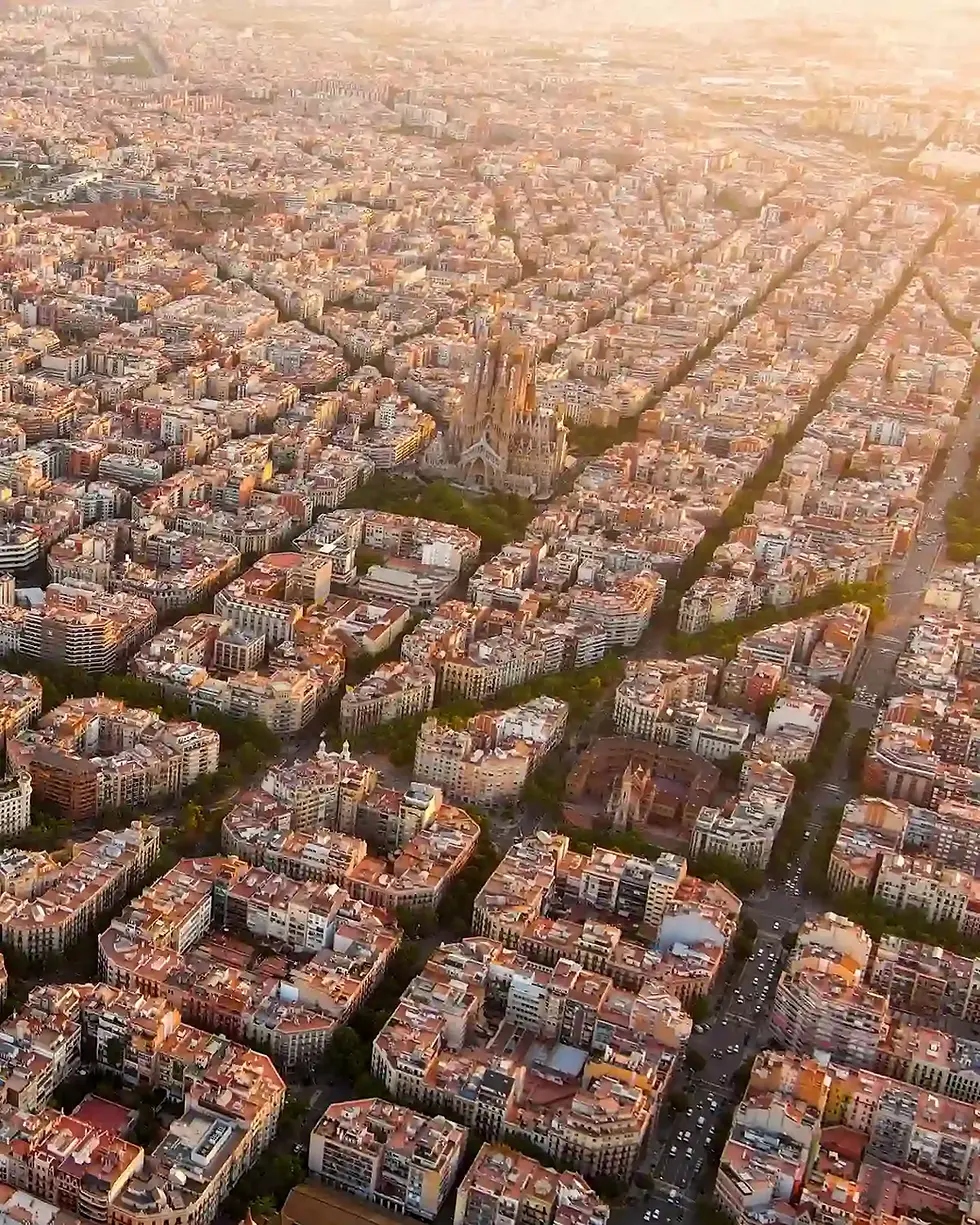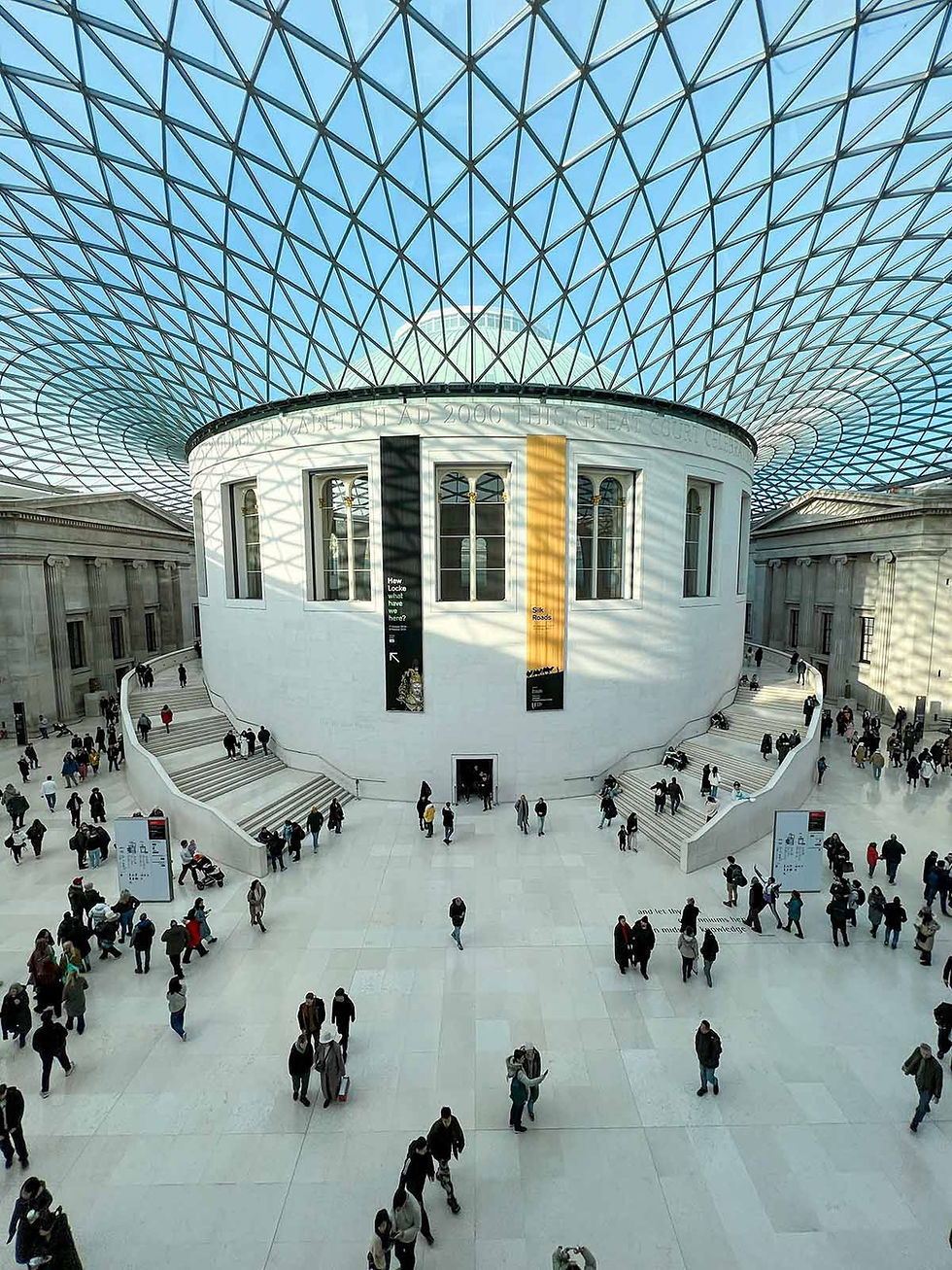Essaouira: A Breezy Escape from the Moroccan Heat
- The editorial team

- Oct 29, 2023
- 6 min read

When Marrakech reaches summer temperatures in the forties, the charming port city of Essaouira is a relaxing and refreshing escape from the Moroccan heat.
A three-hour drive towards the west from Marrakech, you will hit the Atlantic Ocean and Essaouira, a charming port city with a rich and diverse history, a vibrant culture and art scene, and various activities to suit every taste, especially watersport enthusiasts.
A Historical and Cultural Treasure

Essaouira was founded in the 18th century by Sultan Mohammed III, who wanted to create a modern and cosmopolitan port connecting Morocco with Europe and the rest of the world. He hired several renowned architects, including Théodore Cornut and Ahmed al-Inglizi, who designed the city using French captives from the failed French expedition to Larache in 1765. The result was a beautiful and harmonious blend of Moroccan and European styles, with whitewashed houses, blue shutters, and fortified walls.
Advertisement
Advertisement
Essaouira soon became a central trading hub and a diplomatic capital, attracting merchants, diplomats, artists, and travellers. The city was home to a diverse and tolerant community of Muslims, Jews, Christians, and Berbers, who coexisted peacefully and contributed to its cultural richness.
Today, you can still experience Essaouira's historical and cultural heritage by visiting its monuments, museums, and markets.
The Medina
The old town of Essaouira is a UNESCO World Heritage Site and one of the best-preserved examples of a late-18th-century fortified city in North Africa. You can wander through its narrow streets and alleys, admiring the architecture, browsing the shops and stalls, and soaking up the atmosphere. You will find everything from spices, leather goods, carpets, pottery, and jewellery to thuya wood products, a speciality of Essaouira. Sidi Mohammed Ben Abdallah Museum, which displays artefacts and exhibits related to the history and culture of Essaouira, is worth visiting.
The Port

The fishing port of Essaouira is one of the city's most lively and colourful places. You can watch the fishermen unload their catch of the day, sell their fish at the auction, or prepare them for cooking on the streets. You can also see the traditional wooden boats being built or repaired at the shipyard. The port is also a great place to enjoy fresh seafood at one of the many restaurants or stalls along the quay.
The Ramparts

The ramparts of Essaouira are part of the fortifications that surround the city. They offer stunning views of the sea, the port, and the old town. You can walk along them or climb up to some of the bastions and towers that dot them. One of the most famous ones is the Skala de la Ville, featured in Game of Thrones as Astapor, the home of the Unsullied. You can see some old cannons and admire the intricate carvings on the walls.
Advertisement
Advertisement
The Jewish Quarter
The Jewish Quarter, or Mellah, is located in the south-eastern part of the old town. It was once home to a large and prosperous Jewish community that played an essential role in Essaouira's trade and economy. You can still see traces of its past glory, such as synagogues, cemeteries, schools, and houses.
A Sporty Paradise

Thanks to its location on the Atlantic coast and its windy climate, it is nicknamed "the Wind City of Africa," Essaouira offers plenty of outdoor activities and fun with its long sandy beach stretching several kilometres along the coast.
Surfing
Essaouira is one of the best places in Morocco for surfing, thanks to its consistent waves and wind conditions. You can find waves for all levels, from beginners to experts, and surf all year round. You can also take surfing lessons or rent equipment from one of the city's many surf schools or shops. Both kite-surfing and wind-surfing are very popular in Essaouira.
Horse Riding
Another way to enjoy the beach and the countryside around Essaouira is by horse riding. You can join a guided tour or rent a horse from one of the stables in the city. You can ride along the beach, dunes, or in the forest and admire the scenery and wildlife. You can also choose between different durations and levels of difficulty, depending on your preference and experience.
Camel Riding

If you prefer a more traditional and exotic way of exploring Essaouira, you can opt for a camel ride. You can ride a dromedary, a one-humped camel, along the beach or the countryside and feel like a nomad in the desert. You can also join a guided tour or rent a camel from one of the operators in the city. Depending on your interest and budget, you can choose between different durations and routes.
Quad Biking
If you want some adrenaline and excitement, you can try quad biking in Essaouira. You can rent a quad bike from one of the many providers in the city and drive along the beach, through the dunes, or in the forest. You can also join a guided tour or a group excursion to discover hidden spots and off-road trails. You can choose between different durations and levels of difficulty, depending on your skill and courage.
Advertisement
Advertisement
The best time to visit
Essaouira is known as the "Wind City of Africa" because of the strong breeze from the Atlantic Ocean. This makes it an excellent destination for windsurfing, kitesurfing, and sailing, especially between April and November, when the wind is at its peak. However, if you are not into water sports, you may find the wind annoying or chilly, especially on the beach. The wind tends to drop in September and October.
Festivals
Essaouira hosts several yearly cultural festivals that showcase its rich and diverse heritage.
The Gnaoua World Music Festival
This is an annual festival that celebrates the music and culture of the Gnaoua people, who are descendants of former slaves from sub-Saharan Africa. The festival features concerts by local and international artists who perform traditional and modern styles of Gnaoua music, as well as workshops, exhibitions, and street parades. The festival usually takes place in June or July and attracts thousands of visitors.
Advertisement
Advertisement
The Essaouira Festival of Atlantic Andalusian Music
This is an annual festival that honours the musical legacy of Andalusia, which was once a region of Spain where Muslims, Jews, and Christians coexisted peacefully. The festival features performances by musicians who play Andalusian music genres such as malhun, gharnati, al-ala, tarab al-andalusiyyah, as well as flamenco, sephardic, fado, and jazz. The festival usually takes place in October or November and attracts hundreds of visitors.
The Festival des Alizés
This is an annual festival that showcases classical music by local and international artists who perform in various venues around Essaouira. The festival aims to promote cultural exchange and artistic diversity through music. The festival usually takes place in April or May and attracts hundreds of visitors.
How to get to Essaouira

By bus:
There are frequent buses to Essaouira from Marrakech, Agadir, Casablanca, Rabat, and other major cities in Morocco. The bus journey takes about 3 hours from Marrakech, 3 hours from Agadir, and 7 hours from Casablanca. You can book your bus tickets online on the websites of the main bus companies, such as Supratours or CTM. The bus station is near the old town of Essaouira, and you can walk or take a taxi to your accommodation.
By car:
The road conditions are generally good, but you should be careful of speed limits, traffic police, and animals on the road. Parking in Essaouira can be difficult, so you should look for accommodation with parking facilities.
By plane
Essaouira has a small airport (ESU) that receives domestic flights from Casablanca and international flights from Paris, London, Brussels, and Marseille. The airport is about 15 km south of the city centre.
Advertisement
Advertisement
Currency
The currency of Morocco is the Moroccan dirham (MAD), divided into 100 centimes. ATMs are widely available in Essaouira and other cities in Morrocco. You can also pay with credit cards in hotels, restaurants, and shops, but you should always carry some cash for smaller purchases or tips.
Language
The official languages of Morocco are Arabic and Berber. Still, French is widely spoken as a second language, especially in urban areas and tourist destinations.
Safety
Morocco is generally a safe country to visit, but you should always exercise caution and common sense when travelling. You should also respect the local customs and laws, such as dressing modestly, avoiding public displays of affection, and not consuming alcohol or drugs publicly.















